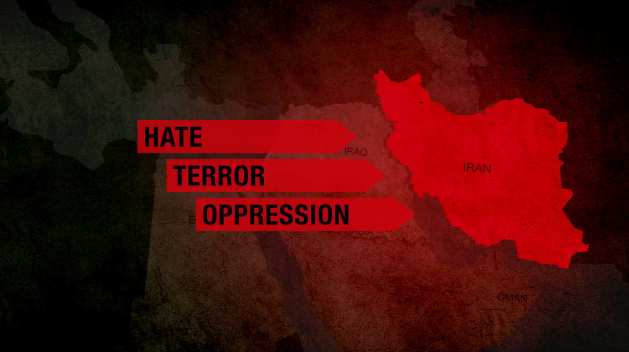Israeli Prime Minister Binyamin Netanyahu warned that Iran is about to cross the nuclear red line and the U.S. had better do something about it.
| The election of Hassan Rowhani, a moderate president, is a game changer and likely means Iran will slow down its nuclear project. That’s good but not good enough for Israel’s long-time war hawk, Binyamin Netanyahu. |
But Netanyahu’s fear-mongering has made a difference. The Israel lobby here has made confronting Iran the centerpiece of its activities on Capitol Hill, successfully drafting and easily convincing Democrats and Republicans to enact sanctions that punish the Iranian people along with resolutions making clear that the U.S. will go to war if Iran doesn’t give up its nuclear program.
It is worth noting that right after Netanyahu spoke on the show, Sen. Dick Durbin, a dovish Democrat (except on Israel), who is up for re-election in 2014, piped in to say that he is with Netanyahu. He said “neither the American people nor Congress are seeking a war, we’re not looking for one. But the Iranian leadership shouldn’t push us to the brink.”
But what is the brink that Netanyahu and Durbin are talking about? The only thing that has changed in Iran since Netanyahu last did his war dance is that Iran has elected a new president who, unlike his radical predecessor, seems determined to tamp down tensions in the region. In the words of Israel intelligence writer, Yossi Melman, writing for the Forward, Hassan Rowhani’s election is a “game changer for Iran, the West, and Israel” because he will “likely avoid nuclear confrontation.”
Rowhani’s election win signals a growing possibility that Iran will decide to slow down its nuclear project. That would be part of a policy of engaging with the U.S. (as everyone assumes that President Obama would dearly like to avoid waging war against Iran).
So here is another unexpected result: that Israel will be further isolated in its severe concern over Iran’s nuclear capabilities … The gap between Israel and America on these issues may well be further widened.
That is why Netanyahu is so rattled.
He does not want Iran to “slow down its nuclear project.” As he said on “Face The Nation,” he insists that Iran “stop their nuclear program.” Period.
They must give up the right to nuclear power completely because Iran’s government is “messianic, apocalyptic, extreme regime …” As for Rowhani, Netanyahu says, even before he is sworn in, that he is a “wolf in sheep’s clothing” and he, Netanyahu, is not fooled. But he is scared that everyone else is fooled and that the war option is, in Melman’s words, “buried even deeper.”
And so he has gotten the Israel lobby to go to work. The name of the game is pretending the Iranian election never happened, that everything is the same, and that more sanctions and, when they fail to accomplish Netanyahu’s goals, military action is the only answer.
If you doubt that is the plan, check out the American Israel Public Affairs Committee’s (AIPAC’s) latest video message (from which the image above came). It is less than two minutes long but it still manages to blame Iran for virtually every problem afflicting the region today, from Syria to Sudan, stating that “the Islamic Republic casts a dark shadow of hate, terror and oppression in the region. … And all the while Iran is racing to build a nuclear weapons capability.”
There is, of course, no mention of the Iranian election. And that is the key point: Iran won’t change. It can’t change. Be afraid, be very afraid. The video ends:
We must act now to prevent Iran from becoming even more dangerous. Contact your Member of Congress and urge them to increase sanctions on Iran before it’s too late.
That is, increase sanctions now to let Iran know that anything Rowahani does short of meeting Netanyahu’s demands for total surrender on the nuclear issue is of no interest.
Will Congress heed that message? Will it follow AIPAC and Netanyahu’s lead and reject any possibility that the new Iranian leadership should be heard out first? Will it continue to demand that Obama reject the idea of relaxing sanctions no matter what?
To those questions, the answers are yes, yes and yes.
The 2014 election season has begun and AIPAC is critical to Democrats. As for Republicans, they believe military force is the answer to most foreign problems and, unlike Democrats, don’t make Israel the big exception to their views on foreign policy.
Obama, on the other hand, clearly does not want war.
As I’ve written before, I believe that he allows Israel to do whatever it wants to in the West Bank to make it easier to say no to attacking Iran. All his appeasing of Netanyahu is designed to build up the credit with the Israeli people, if not Netanyahu, so he is able to resist Netanyahu’s pleas and to forbid Israel (our largest aid recipient) from doing so itself. That is unfortunate but it’s better than enabling the oppression of the Palestinians and becoming embroiled in another war.
Of course, it would be infinitely better to stop facilitating the occupation and say no to war with Iran too. But, get serious. As we can see from Secretary of State John Kerry’s failed peace mission, that will not happen due to the U.S. refusal to put direct pressure on Israel. But we can avoid a third Middle East war in a decade. And that is critical.
M.J. Rosenberg is a Special Correspondent for The Washington Spectator. He was most recently a Foreign Policy fellow at Media Matters For America. Previously, he spent 15 years as a Senate and House aide. Early in his career he was editor of AIPAC’s newsletter Near East Report. From 1998-2009, he was director of policy at Israel Policy Forum. Follow him @MJayRosenberg.







0 Comments